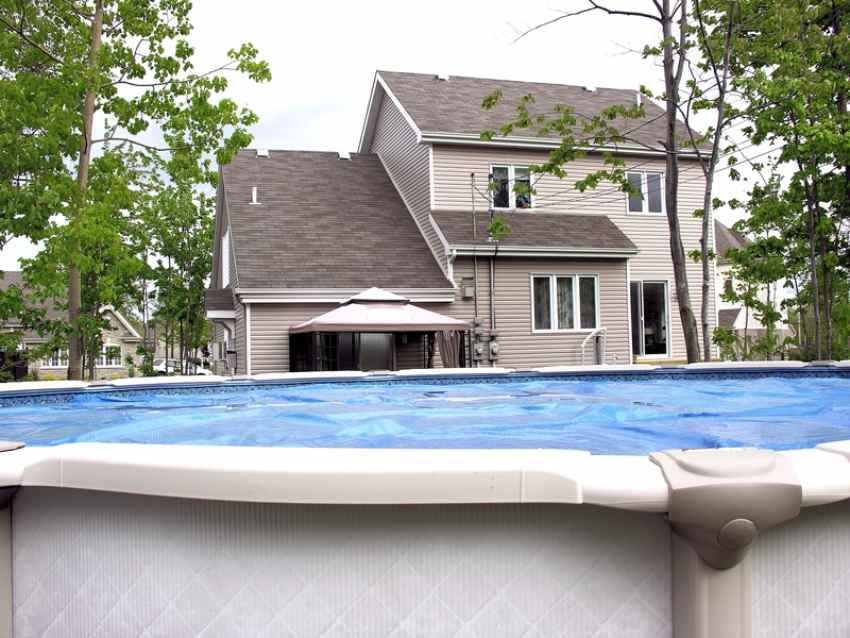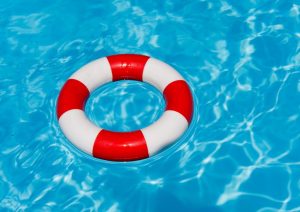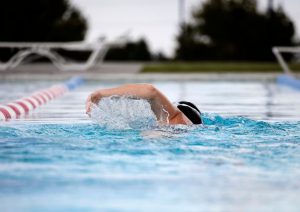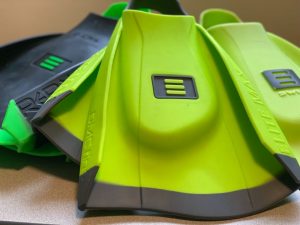
7 Best Swim Snorkels for Better Technique and Faster Swimming
Ready to throw down on a new swimmer’s snorkel? Here are reviews of the best swim snorkels for lap swimming.

Wondering what the differences are between free chlorine vs total vs combined chlorine? Here’s why each matter, the differences, how to test, and more.
If you’ve ever been to your local pool, you already know the smell…
The distinctive odor of chlorine that permeates the air, latches onto your skin, and gets into your hair.
Chlorine helps keep pool water safe and suitable for swimming, reducing the advance of bacteria that can make water unsafe.
But when it comes to balancing the water in your swim pool, there is more to it than just the smell.
Fortunately, there is no lab coat or quiz required to understand free chlorine vs total chlorine, key differences, how to test properly for both, and more.
Let’s jump right in!
Chlorine is the world’s most popular disinfectant for swimming pools for its relative safety and reliability.
Adding chlorine into the waters of your above-ground or inground pool does the heavy lifting of keeping bacteria, algae, and other microorganisms from taking root and making the water dirty and unsafe.
Chlorine is very inexpensive, isn’t as harmful compared to other solvents, and works for extended periods of time, reducing reapplications.
Chlorine is still a chemical, however, and is not without its downsides.
See also: How to Protect Your Hair from Chlorine
Namely that overpowering odor (that’s usually not technically chlorine, but chloramines, but we can get to that another time) and skin itchiness from over-exposure.
That said, the upside of chlorine in your swim pool far outweighs the relatively harmless benefits of exposure.
There are three different chlorine measurements you need to be aware of.
They include:
This is the chlorine that is unused and ready to be deployed to disinfect the pool.
Free chlorine is “free” to get after the bacteria and organisms in the pool.
When you drop chlorine tablets or liquid chlorine into your swimming pool, the tablets dissolve like a cheap t-shirt, creating hypochlorous acid.
Before long, it gets oxidized in the water making hypochlorite, kicking off disinfection mode, creating a clearer, cleaner pool.
When testing the pool water, look for a free chlorine level of 2-4ppm.
Combined chlorine is the chlorine in the water that has already put in a shift in the pool.
When chlorine combines to foreign matter—note the word combines—this makes it combined chlorine.
It’s done it’s job.
Ideally, when you test the pool water, and the pool has been thoroughly disinfected, you’ll get a combined chlorine level of zero.
Is the sum of both free and chlorine totals, or the sum of all chlorines in the water.
Easiest math ever!
This number can be misleading, however, as some cheaper pool test kits don’t specify how much of the total is free versus combined chlorine.
Clean, swimmable pool water requires that you are constantly testing the pool water, making sure that the pool chemistry is on point.
But don’t worry, this is actually easier than it sounds, and once you add it to your pool maintenance and cleaning routine, it’s very easy.
(Especially now that you understand the basic differences between the different types of chlorine!)
The best ways to test your pool water include:
Pool test strips are very inexpensive and can be found at most stores that carry outdoor recreation goods (as well as Amazon, obviously).
Draw a sample from the pool, submerge the strip, and after about 30 seconds you compare the colors on the strip to the color-coded guide on the bottle.
For most pool and spa owners, this is more than adequate for testing free vs combined chlorine, as well as a range of other things like phosphates, pH, and total alkalinity.
If you want to get more precise with your pool chemistry, investing in a digital pool tester is a great idea.
Not only can they give you highly specific PPM levels for free, combined, and total chlorines, but the best digital pool testers on the market can also give you pH, bromine, alkalinity, calcium levels, and more. All on a nice digital readout that takes away the color-coded guessing that happens with test strips.
The only thing it won’t do is clean your pool of leaves after a windy day ?.
Water testing kits, or liquid pool test kits, are a little bit more “hands on” when it comes to testing, using reagents to pump out pool chemistry details.
Testing requires a steady hand—adding too much reagent to the sample can accidentally skew results—but testing this way will give you a slightly more accurate reading compared to test strips.
Trick question! They both are.
Free chlorine is important, because you want chlorine ready to step in and disinfect the water. Having enough free chlorine in the water will keep the water clean.
As combined chlorine levels climb, you will begin to notice the distinctive smell of chlorine—which, again, is actually chloramines, aka combined chlorine—and the water will begin to cloud.
Keep your eyes on both via regular testing, and you will be well on your way to enjoying clean pool water all summer long.
Shocking the pool—and no, we aren’t talking about throwing a plugged-in toaster into the water—is all about temporarily blasting the free chlorine levels to disinfect the pool.
When shocking the pool, we are raising the free chlorine levels by a factor of ten times, called “breakpoint chlorination.”
Over time, and with improper pool chemistry, chloramines (combined chlorine) can build up, creating an ideal scenario for the growth of bacteria and algae. In other words, free chlorine has been largely used up and we need to superchlorinate in order to bring balance back to our pool chemistry.
Shocking the pool should be done regularly during periods of heavy use, and is typically recommended after heavy rainfall or other weather-related events that send a heap of organic matter and added water to the pool.
Again, testing regularly will help inform how often you should drop some pool shock into the water.
There’s not much better than jumping into a cool, clean pool on a hot summer day.
And while a lot of the lingo and science behind proper pool chemistry can feel intimidating to the newcomer, it’s actually very straightforward once you’ve got a grasp of the basics of chlorinating the water.
So go on, test those chlorine levels with confidence, and enjoy that pool or spa knowing the water is clean and safe!
5 Reasons Your Pool Has Cloudy Water and How to Fix It. Frustrated with cloudy pool water? Here are five reasons it’s happening and proven fixes so that you can get back to enjoying your pool.
How to Open Your Above-Ground Pool Like a Boss. Looking to open your above-ground pool for a season of sun and fun? Here is a simple 9-step process for opening your pool like a champ.
How to Drain an Above Ground Pool. Looking for information on how to drain an above ground pool? Follow the simple steps in this guide and do it right the first time.
Subscribe to the YourSwimLog.com newsletter and get tips and advice on how to swim faster every weekday morning, straight to your inbox.
Join 33,000+ swimmers, coaches, and swim parents learning what it takes to swim like a boss.
Unsubscribe anytime. Email will never be shared or sold.

Olivier Poirier-Leroy Olivier Poirier-Leroy is the founder of YourSwimLog.com. He is an author, former national level swimmer, two-time Olympic Trials qualifier, and swim coach.

Ready to throw down on a new swimmer’s snorkel? Here are reviews of the best swim snorkels for lap swimming.

Looking to get some new swim gear on a budget? Shop the best Black Friday deals for swimmers in this exclusive guide.

Looking for the best swimming app to maximize your time and effort in the water? Here’s a look at the top swim apps for conquering your swim workouts.

Wondering how often you should be testing the water in your pool or spa? Here’s a detailed look at how frequently you should test your pool. Your swimming pool and spa relies on being properly balanced to keep the water clean and safe for swimming. As a pool owner, you

Fed up with the effects and smell of chlorine in your hair after swimming? Here is how to remove chlorine from your hair once and for all.

The DMC Elite fins are high-performance training fins for competitive swimmers. Here’s a review of why these fins are flat-out awesome.

LANE 6 PUBLISHING © 2012-2024 · PRIVACY POLICY · RETURN POLICY · TERMS OF SERVICE · AFFILIATE DISCLOSURE